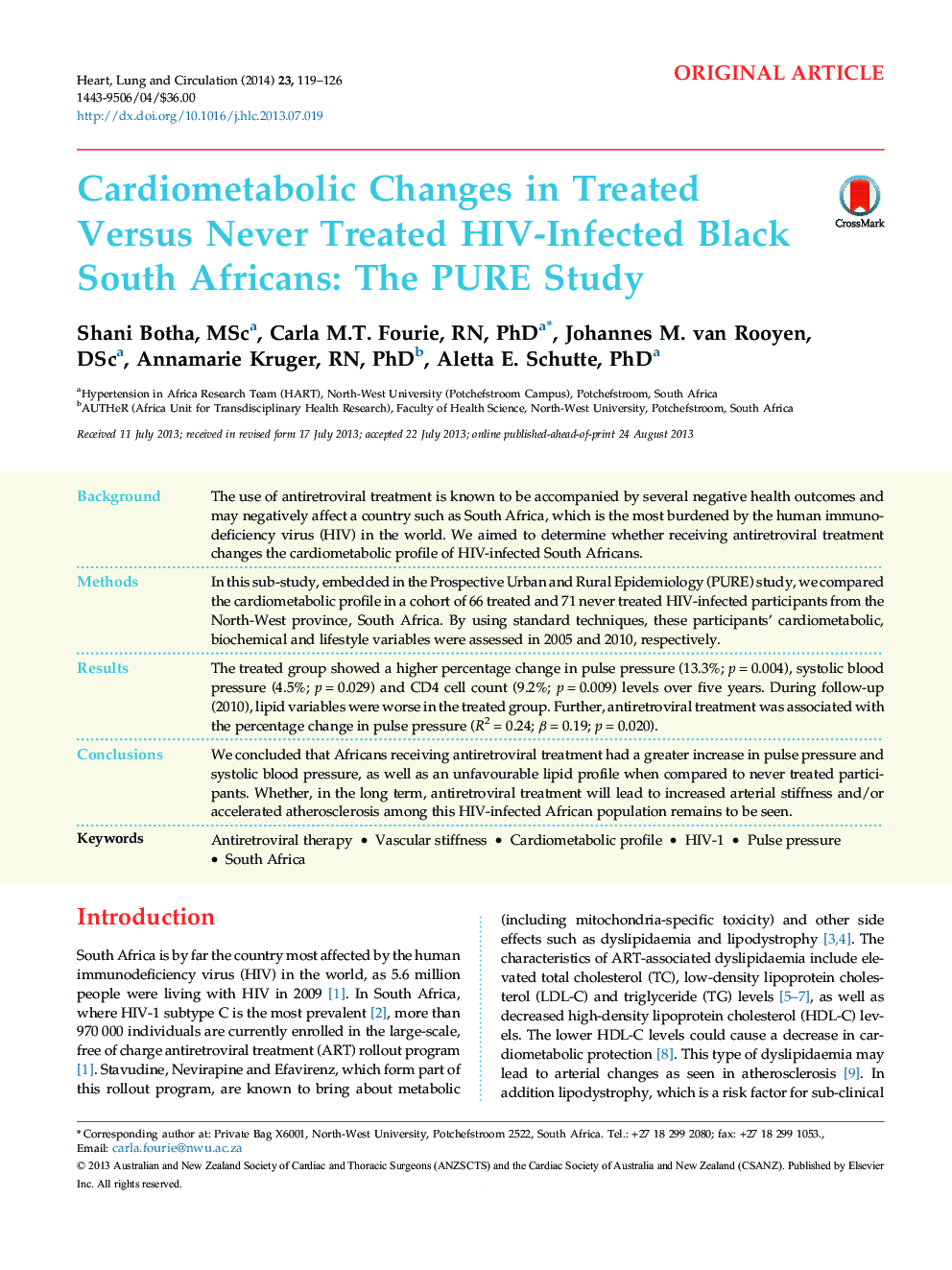| Article ID | Journal | Published Year | Pages | File Type |
|---|---|---|---|---|
| 2918887 | Heart, Lung and Circulation | 2014 | 8 Pages |
BackgroundThe use of antiretroviral treatment is known to be accompanied by several negative health outcomes and may negatively affect a country such as South Africa, which is the most burdened by the human immunodeficiency virus (HIV) in the world. We aimed to determine whether receiving antiretroviral treatment changes the cardiometabolic profile of HIV-infected South Africans.MethodsIn this sub-study, embedded in the Prospective Urban and Rural Epidemiology (PURE) study, we compared the cardiometabolic profile in a cohort of 66 treated and 71 never treated HIV-infected participants from the North-West province, South Africa. By using standard techniques, these participants’ cardiometabolic, biochemical and lifestyle variables were assessed in 2005 and 2010, respectively.ResultsThe treated group showed a higher percentage change in pulse pressure (13.3%; p = 0.004), systolic blood pressure (4.5%; p = 0.029) and CD4 cell count (9.2%; p = 0.009) levels over five years. During follow-up (2010), lipid variables were worse in the treated group. Further, antiretroviral treatment was associated with the percentage change in pulse pressure (R2 = 0.24; β = 0.19; p = 0.020).ConclusionsWe concluded that Africans receiving antiretroviral treatment had a greater increase in pulse pressure and systolic blood pressure, as well as an unfavourable lipid profile when compared to never treated participants. Whether, in the long term, antiretroviral treatment will lead to increased arterial stiffness and/or accelerated atherosclerosis among this HIV-infected African population remains to be seen.
